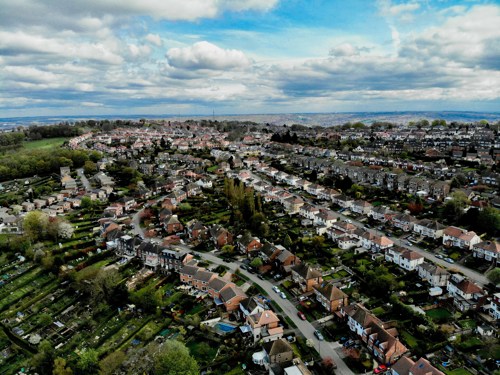Homelessness is solvable. We know that we can end homelessness for good with more homes, fairer policies, and the right support.
We can’t end homelessness without homes. Right now, over 100,000 households in England are stuck in temporary accommodation. Many others are unable to find a permanent home due to rising rents and insufficient social housing.
When housing is scarce and unaffordable, it makes it harder for people to keep their home or find a new one.
Our research shows the government will need to invest in building 90,000 new social homes each year, for the next 15 years, to meet current needs. Alongside building new homes, we must also make better use of existing properties.
There are more than a quarter of a million homes sitting empty in England. With targeted support and funding these vacant properties could become safe, settled homes again.

Our current support systems are failing those most in need. Cuts to services and increasing pressure on local authorities have made it harder for people to access the right support.
We need to build a system where no one faces homelessness alone. This starts with welfare reform and ensuring benefit levels match the real costs of living. We must also work to put in place robust protections for tenants by putting a stop to unfair evictions and providing support for those most at risk. While it’s welcome that the government is introducing greater protection from eviction for tenants, we need to see more support provided to help people keep their homes.
Services to support people coping with poor mental health, addiction and domestic violence, must also be well-funded and accessible to everyone who needs them.
The UK’s current homelessness legislation is not fit for purpose and often excludes those who need its support the most. It needs an urgent, expert review to ensure that everyone facing homelessness gets the support they need.
We must also invest in more long-term solutions to homelessness, such as Housing First and the Critical Time Intervention model.
The Housing First approach prioritises getting people with complex needs access to a home of their own. This allows them to receive support in a stable environment, without being forced through a hostel system first. It’s the most successful method of support we have for tackling entrenched rough sleeping.
The Critical Time Intervention model aims to support people who are at risk of homelessness during key times of transition. This could be when leaving prison, care, hospital or asylum accommodation. It works by providing people with permanent housing and focused support to help them settle into their new homes and access relevant services.

Prevention is always better than cure, but this requires a shift in how we view support. We must start to prioritise proactive measures over reactive ones.
Early interventions, such as family mediation, financial support and targeted help for those most at risk, can stop homelessness before it begins. Building more affordable homes and investing in long-term solutions to homelessness will allow everyone to have a safe, permanent place to call home.
By focusing on prevention, we can break the cycle of homelessness.
No one should be left without a home. Help us end homelessness for good and get involved at Crisis. There are so many ways you can help:
Homelessness is not inevitable. We campaign to ensure the government puts in place robust policies to end homelessness. With your support, we can increase the pressure on the government and make homelessness an issue they can’t ignore.